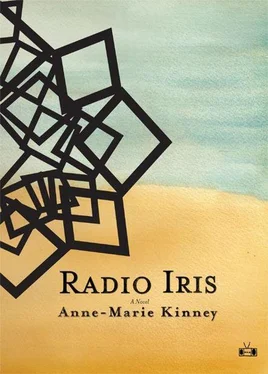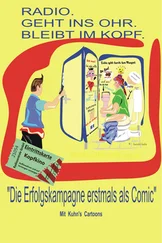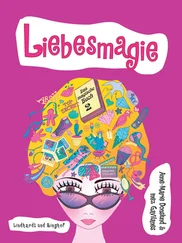“Neil, can you hear me?”
The sounds seem to soften now, and she wonders if he was dreaming— like when a dog starts whimpering or kicking his legs in his sleep— or is dreaming still.
“Goodnight,” she says, and hangs up, as the kettle begins its high, mournful whistle.
There on the pristine Ikea couch, with stocking feet hanging off one side and his mouth open against the upholstery, Neil dreams that he is swimming toward a buoy that bobs in the distance, in water so murky he feels his body disappear beneath its surface, his arms only re-materializing as they reach up to stroke. His muscles pulse powerfully, arcing forward, up into the cool air, but as soon as they dip back down into the water, he feels lost, helpless as a ghost, his kicks theoretical at best, bringing him no closer to anything, his body a cloud of particles pressing together and releasing in a never-ending cycle.
Somehow, he reaches shore, and then, somehow, a city, where an undefined cataclysmic event has occurred. He finds himself pulling bodies out of buildings, running from rushing fireballs, punch-kick-shoving his way through the wreckage. He’s saving himself, and a growing pack of followers, out of the darkness.
When he finally wakes up, blinking fast and flicking his head from side to side until the realization of his body and couch dawns on him, he can’t piece together what was happening. The only image he retains is of himself, running, running into nothing and away from everything, and that too begins to fade as he perches himself up on his elbows and glances, puffy-eyed, at the cold macaroni on the counter.
After folding and putting away the laundry, Iris gets ready for bed, and while she’s wandering through the apartment brushing her teeth, she pulls the little radio out of her purse. It’s so small and toy-like, a physical cartoon. She switches it on again and turns the dial slowly in search of a station, but still she finds only approximations— vague, formless music mostly drowned out by snow, quiet voices bulldozed by a steady crackle, and then nothing. She sets it down on the couch and returns to the bathroom.
In bed, Iris lies there, wanting sleep. And as the night grows darker outside her window, and sleep finally finds her, she sinks down again, into the place where her dreams have taken up residence.
In the old house, she finds herself in the overstuffed shed, the walls teeming with rusty tools, boxes for long-forgotten appliances, a pile, ceiling high, of Time magazines.
On the floor, next to an old, splintered yellow table, she finds a radio. It is not an old radio, but it has been forgotten. She runs her finger over the speakers and draws a line through the soft layer of dust. She leans down and blows, loosening a cloud of it. The dust settles all around, spread thin now, dissipated but not gone. She picks up the radio and cradles it in her arms, walks out the door into the house with the cord trailing on the ground.
She walks through the kitchen, where Sebastian still lazes on the kitchen table, past the picture window that looks out onto the yard. She hears voices coming from out there, frenzied little murmurings building in volume, but when she looks, there’s nobody there, and the voices have stopped. For a moment, she stands still, waiting for them to start up again, but they don’t. Sebastian follows her with his eyes as she continues down the hallway. In her room, with its flickering overhead lamp and shutters closed tight, she plugs the radio in between two heavy oak bookshelves and sets it on an empty shelf. The radio lights up. It’s been waiting for this.
She turns the dial slowly, stopping at each station, though nothing is coming in. With each turn of the dial, the static grows more opaque, a wall of sound that creates a kind of hush throughout the room, objects becoming even more still. The house stops creaking. There is no space in the air anymore.
Finally, the dial hits on something. Clear as water, a signal comes in. Iris backs away from the radio and sits on the cold floor. She pushes her body in between the two bookshelves and hums along, humming, You send me, darling you send me, honest you do, honest you do, honest you do, and the trees outside bend beneath the solid force of the wind. Everything bends ever closer to the ground.
Tucked safely between the bookshelves with her eyes closed, Iris feels this happening, but when the song ends, another doesn’t come on. There is no static, only silence. The room is filled again with the breath of objects, the imperceptible fidgeting of a stapler on the desk, of a sofa sinking on its springs.
She glances around her and is suddenly struck by the fact that this isn’t her room. She gravitated toward it instinctively, but — there’s no bed. There are none of her things. She doesn’t even recognize this room. She rises quickly and opens the shutters to find the same yard she looked out at just minutes before, only the sun is brighter, as though it’s moving in closer, illuminating and alienating her at once. She tries to open the window, but it’s locked, and she can’t find the latch.
On a hunch, she tries the door; it’s locked too.
“Hello?” she says, then louder, “Hello!” and at that, she hears Sebastian run to the door and begin to snarl, his growling erupting finally into a persistent bark.
She retreats back to the window, and she can just barely hear the voices outside again, whispering, chattering, but from the small window, she can’t see anybody, nor make out any words.
“Hello?” she tries again, toward the window this time, but the glass is thick, the sun full and blinding.
The sun isn’t going anywhere, and neither is she, and suddenly, she wonders if the dog on the other side of the door is Sebastian at all, but then she is awake in her own bed in her own apartment and her fear feels misplaced. It is dissipated but not gone. She lies back on her pillow, crickets chirping outside her city window, and does not fall asleep again.
The night turns over into morning and Iris sits up in bed. She can tell already that it will be a hot day, as the sun shines mercilessly bright rays into her room. Then her alarm goes off and she hits it before the second beep. She blinks slowly and winces. Her eyes ache. The relief of closing them lasts only until they open again. It is as though she has no control over the operation.
She walks into the kitchen to dig around for breakfast. There, she sees the empty milk bottle on the counter, the unopened box of cereal turned on its side. Her hunger pulls at her, the distinction between nausea and want blurred. She tears the top off the box and begins shoveling the cereal into her mouth, barely swallowing before pushing the next handful in. The urgency of her hunger finally recedes and she sets the box down on the counter. She coughs and a slimy chunk of bran flies back up her throat and into her mouth. She spits it out into the sink.
She slumps over to the couch, the little radio sitting where she left it. She picks it up and begins to examine it, peering into its holes, blowing more dust out of it. She stares at it, its speakers like big insect eyes, its cassette deck mouth. If it was his, it’s hers now, and though it fills her with a kind of satisfaction to have something of his, she isn’t sure why she took it, or what she plans to do with it, if anything.
She sits there, still turning the radio over in her hands and goes over the day as she expects it to unfold. Traffic. Park. Up the stairs. Alarm. Desk. Phone. Light of the computer screen. She will listen for any movement from the man next door, and it will come or it won’t. Or maybe it’s her turn now, and she’ll wait for any movement from herself. She will have messages or she will have a list of tasks and she will do them or she won’t or she will spend twenty minutes in the sickly green-lit bathroom while women bang on the door and she will not be able to operate the doorknob.
Читать дальше












